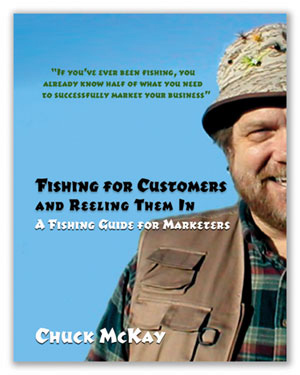
Before You Begin Writing Those Ads…
By Roy H. Williams
Which do you think would work better, the brilliant execution of a flawed strategy, or the flawed execution of a brilliant one?
In business, it’s the flawed execution of a brilliant strategy that usually wins the day.
Most advertising professionals are unwilling to question a client’s strategy because they’re afraid of losing the account. So they happily pretend that "good writing, scientifically selected colors, powerful pictures and reaching the right audience" is all that’s needed to make money in America.
Piffle and Pooh. Give me average writing, bland colors, no pictures, the wrong people and a strong strategy and I’ll have to rent a trailer to haul my money to the bank.
It’s hard to tell a powerful story badly. But it’s easy to tell a weak story well. I’ve never seen a business fail because they were "reaching the wrong people." But I’ve seen thousands fail because they were saying the wrong thing. Please hear me correctly. These catastrophic failures weren’t saying the right thing badly, they were saying the wrong thing well. It’s amazing how many people become "the right people" when you’re saying the right thing. Believe it or not it’s advertising third, customer delight second, strategy always first.
At the heart of every moneymaking ad campaign is a powerful strategy, a story that needed to be told. But not every business has such a story. When your ads aren’t working, return to the core, look at first causes, heal the central wound. No writer, no matter how brilliant, can dress up a bad idea and sell it to intelligent people. It usually takes more than good writing to pull you back from the brink of disaster.
How did you get to the brink of disaster in the first place?
Business owners wander near the brink when they:
(1.) fail to have an attractive core strategy.
(2.) pretend their competitors don’t matter.
(3.) believe that "reaching the right people" is the secret to success.
(4.) worry about "increasing traffic" more than delivering a wonderful customer experience.
Give me a business that delights its customers and I can write ads that will take them to the stars. But force me to write ads for a business that does only an average job with their customers and I’ll have to work like a madman to keep that business from sliding backwards. Unless they have no competitors.
I’m amazed by business owners who assume that every successful business deserves to be successful. The truth is that a business with weak competitors is going to succeed no matter how bad their advertising or how consistently they disappoint their customers. Could good advertising save a bad restaurant? No, but these restaurants succeed in spite of bad food and no advertising when they’re the only restaurant in the hotel. Strategy triumphs again.
Roy H. Williams
The first step in creating a great ad campaign is to refine your core strategy. Have you taken a hard look at it lately? Yesterday’s successful strategy can easily become tomorrow’s dismal failure. We see it all the time. And no perspective is so warped as the view from the inside, looking out. Is that where you’ve been trapped? If you’d like an outsider’s opinion from me or one of my brilliant, but less expensive partners, contact us and we’ll spend a day turning your world upside down and inside out. (It’s a lot more fun than it sounds.) Or you could attend the spellbinding Secret Formulas Advertising Workshop at Wizard Academy in Austin.
One of my newest partners, Chuck McKay, just released his first book, Fishing for Customers and Reeling Them In. You should take a look at it.

